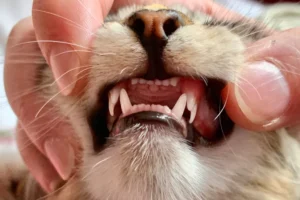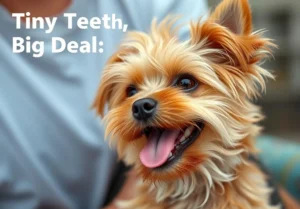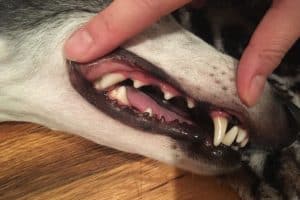Have you ever noticed your cat grinding her teeth while you pet her? It can be a concerning behavior for many cat owners. In this blog post, we will explore the reasons behind why your cat may be grinding her teeth and what you can do about it.
When you notice your cat grinding her teeth while you pet her, it may be a sign of dental issues such as tooth pain or discomfort. It’s important to address this behavior promptly to ensure your cat’s oral health and overall well-being.
Dental Problems
When it comes to your furball’s pearly whites, dental issues can be a major culprit behind that teeth grinding habit. Dental problems such as tooth decay, gingivitis, or broken teeth can cause discomfort when your cat is being petted, leading to them grinding their teeth as a way to cope with the pain. Regular veterinary check-ups are crucial to ensure your kitty’s oral health is in top shape. Professional cleanings and dental care at home, like brushing their teeth, can help prevent dental problems and keep your cat’s chompers healthy.
Stress and Anxiety
Cats can be little bundles of nerves, and stress and anxiety can manifest in unexpected ways, like teeth grinding. If your feline friend is feeling anxious or stressed, they may grind their teeth as a self-soothing mechanism. Creating a calming environment for your cat, with quiet spaces, interactive toys, and plenty of love and attention, can help reduce their stress levels. Regular play sessions and establishing a routine can also provide a sense of security for your cat, helping to alleviate their anxiety and reduce teeth grinding.
Additional Insight: Cats are highly sensitive to changes in their environment, so even small adjustments like rearranging furniture or loud noises can trigger stress and lead to teeth grinding. Keep an eye out for any changes that might be causing your cat distress and try to address them to help keep their pearly whites in tip-top shape.
Behavioral Issues
If your cat grinds her teeth when you pet her, it may be due to underlying behavioral issues. Cats may grind their teeth as a sign of stress, anxiety, or discomfort. Pay attention to your cat’s body language – if she tenses up, flicks her tail, or tries to move away when you pet her, it could be a sign that she is not enjoying the interaction.
To address behavioral issues causing teeth grinding, create a calm and relaxed environment for your cat. Provide plenty of hiding spots, vertical space for climbing, and interactive toys to keep her mentally stimulated. Consider using calming pheromone diffusers or sprays to help reduce stress. Gradually desensitize your cat to petting by starting slowly and rewarding her with treats when she reacts positively.
If the teeth grinding persists despite efforts to address behavioral issues, consult with a professional behaviorist for further guidance and support. Remember, patience and understanding are key when dealing with behavioral problems in cats.
Medical Conditions
Teeth grinding in cats can also be a symptom of various medical conditions. It is essential to rule out any underlying health issues that may be causing discomfort for your feline friend. Jaw misalignment or dental problems such as tooth decay or oral tumors can lead to teeth grinding in cats.
If your cat continues to grind her teeth despite a comfortable and stress-free environment, it’s crucial to schedule a veterinary visit. A thorough examination, including dental X-rays if necessary, can help identify any potential medical issues causing the behavior. Early detection and treatment of medical conditions can prevent further discomfort and improve your cat’s quality of life.
Remember, regular dental check-ups and a well-balanced diet are key factors in maintaining your cat’s oral health and preventing dental issues that may contribute to teeth grinding.
- Book a veterinary appointment for a comprehensive examination if teeth grinding persists.
- Ensure your cat maintains good dental hygiene through regular brushing and dental treats.
- Keep an eye out for signs of discomfort such as drooling or difficulty eating in addition to teeth grinding.
Learn more about dental health in cats.
Nutritional Deficiencies
Does your furry feline friend grind her teeth when you show her some love? Well, one possible reason could be nutritional deficiencies. Just like us humans, cats need a balanced diet to maintain their dental health. If your cat’s diet is lacking certain essential nutrients, it could lead to teeth grinding as a way for them to cope with discomfort. To prevent this behavior, make sure your cat is getting a well-rounded diet with all the necessary vitamins and minerals. You can opt for high-quality cat food that is specifically formulated to support dental health. Consult your veterinarian for personalized recommendations based on your cat’s specific needs.
Dental Care Tips
Hey there, cat parent! Let’s talk about dental care tips for your precious pet. To keep your cat’s teeth in tip-top shape and prevent teeth grinding, it’s essential to establish a regular dental care routine. Yes, that means brushing your cat’s teeth! Use a special pet toothbrush and toothpaste to gently clean your cat’s teeth at least a few times a week. Additionally, providing dental treats or toys designed to promote oral health can help keep your cat’s teeth strong. Don’t forget to schedule annual dental check-ups with your vet to catch any potential issues early on. Your cat will thank you for the extra TLC and care!
Dental Care Tips List:
- Brush your cat’s teeth regularly with a pet-specific toothbrush and toothpaste.
- Offer dental treats or toys to help keep your cat’s teeth clean and healthy.
- Schedule annual dental check-ups with your veterinarian to monitor your cat’s oral health.
Home Remedies
When your cat starts grinding her teeth during petting sessions, it could be a sign of dental issues or discomfort. One way to help alleviate this behavior is by incorporating dental treats into her diet. Look for treats specifically designed to promote oral health and reduce teeth grinding. Regular brushing can also be beneficial in keeping your cat’s teeth clean and preventing dental problems that may lead to grinding. Introduce a gradual brushing routine to get your cat used to the process, and be sure to use cat-friendly toothpaste. Additionally, providing your cat with chew toys can help satisfy her natural urge to chew and prevent teeth grinding. These toys can also help improve dental health by reducing plaque buildup and preventing tartar formation.
Remember: It’s essential to consult your veterinarian before trying any home remedies to ensure they are safe and appropriate for your cat’s specific needs. Professional advice is crucial when it comes to addressing dental issues in cats. If your cat’s teeth grinding persists or worsens, seeking veterinary care is paramount for proper diagnosis and treatment.
Unique Insight: Cats may grind their teeth due to stress or anxiety, so creating a calm and comfortable environment for your feline friend can help reduce this behavior. Consider providing hiding spots, vertical spaces, and interactive toys to alleviate stress and promote mental well-being.
Alex, a passionate animal lover, has experience in training and understanding animal behavior. As a proud pet parent to two dogs and three cats, he founded AnimalReport.net to share insights from animal experts and expand his knowledge of the animal kingdom.




